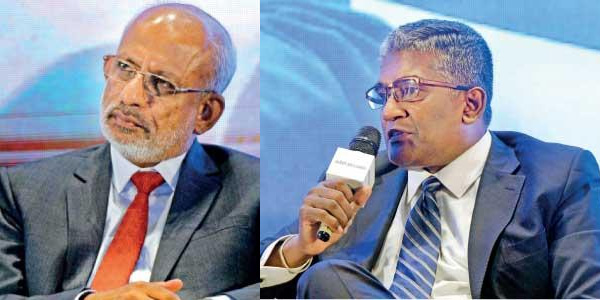
Sri Lanka emphasises equitisation to reform SOEs and bolster capital markets
- CNL Reporter
- April 1, 2025
- Business News
- capital markets, SOEs, Sri Lanka
- 0 Comments
The government is prioritising equitisation as a key strategy to enhance the governance of state-owned enterprises (SOEs) and inject liquidity into the capital market, instead of embracing full privatisation, which has garnered negative sentiment among the Sri Lankan public, according to the comments by Securities and Exchange Commission of Sri Lanka (SEC) Chairman Senior Professor Hareendra Dissabandara.
Prof. Dissabandara emphasised the significant role equitisation could play in Sri Lanka, clarifying that while privatisation has a defined structure, equitisation offers a distinct pathway. He drew comparisons with countries like Vietnam to illustrate the potential successful models.
He made these remarks at the Invest Sri Lanka Forum held in Colombo last week.
Privatisation in Sri Lanka has been a highly controversial and politically charged topic, associated with negative public sentiment. To gain public support, it remains critical to address corruption, ensure transparency and protect worker rights.
Labour Minister and Economic Development Deputy Minister Dr. Anil Jayantha indicated the government’s openness to these mechanisms, provided that the responsible parties determine the appropriate processes. This stance suggests a potential increase in SOE participation in the capital market, which could enhance market liquidity and create new opportunities for investors.
Prof. Dissabandara confirmed the Colombo Stock Exchange’s (CSE) readiness to facilitate SOE listings through its Catalyst Board. He clarified that the SOEs seeking to raise capital through the CSE must meet specific minimum criteria outlined for the Catalyst Board. Notably, this board operates with certain regulatory relaxations,
acknowledging that the initial public offerings may involve partial divestment such as 20 percent to 30 percent of an SOE, rather than full privatisation.
Prof. Dissabandara highlighted the dual benefits of this approach: providing the SOEs access to potentially cheaper capital and enhancing their transparency and accountability. Listing on the capital market brings increased scrutiny and responsibility, aligning the SOEs with the governance standards expected of publicly traded entities.
He also highlighted that the SEC has taken a major step to strengthen its market surveillance capabilities with its decision to procure a state-of-the-art market surveillance system from Nasdaq. “This advanced technology will be implemented in mid-June and equip us with superior tools to detect and respond to market anomalies, scams and manipulation, reinforcing our commitment to maintaining a fair, transparent and resilient financial market,” he added. Furthermore, he outlined the SEC’s priorities, focusing on demutualisation and digitalisation of platforms to further modernise the capital market.
Meanwhile, SEC Director General Chinthaka Mendis added that Sri Lanka has established a robust legal and regulatory framework comparable to both emerging and advanced markets. He stressed the importance of integrating into global fund supply chains to remain competitive and attract international investment.
“The moment you impose restrictions, you become uncompetitive. Global networks function on fine margins. Like our competitors, it’s a must that we integrate into these networks, the most vibrant component of global pool of funds that can be channelled if we work properly towards that end,” Mendis said.
By Nishel Fernando

